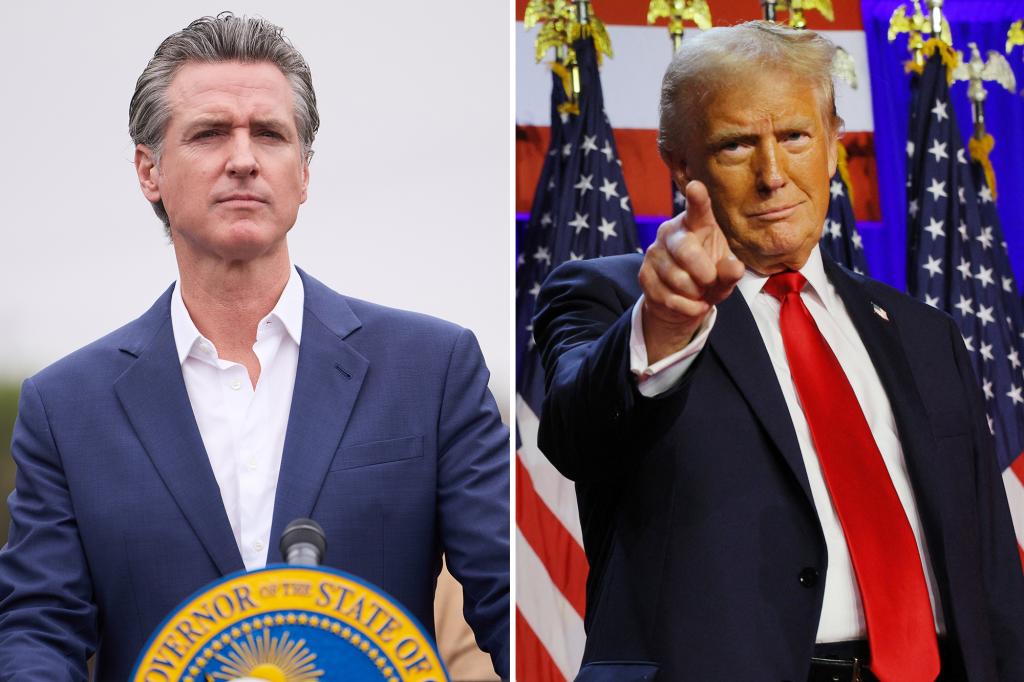In a recent move that highlights the contentious relationship between California’s state government and the federal administration, Governor Gavin Newsom has proposed an additional $25 million in funding aimed at preparing for anticipated legal battles with President-elect Donald Trump. Convening an emergency special session of the California Legislature, Newsom justified this budget request by emphasizing the need to protect critical state services such as disaster relief and healthcare programs. He conveyed his intention of collaborating with the incoming administration while firmly asserting Californians’ rights against any actions he perceives as overreach or threats to freedoms. His comments reflect a wider trend of states, especially California, positioning themselves against federal authority when it conflicts with their policies or interests.
Should the funding request be approved, the allocation would develop a new litigation fund for the California Department of Justice (DOJ). This initiative is designed to enable the state to mount legal challenges against what Newsom regards as unconstitutional federal actions and to safeguard Californians against potential negative ramifications stemming from federal policies. Attorney General Rob Bonta emphasized the significance of this fund, particularly given the potential loss of billions in federal aid if Trump enacts his proposed policies. The urgency of this funding is underscored by the state’s previous experience, where significant litigation costs were incurred during Trump’s initial presidency, which saw the California DOJ file over 120 lawsuits against federal actions.
The cost of legal actions taken against the Trump administration during its first term amounted to approximately $42 million, a figure that calls attention to the financial burden these legal battles impose on California taxpayers. Newsom’s office claims that these lawsuits not only were essential in defending the state’s interests but also resulted in substantial savings for its residents. This narrative indicates that the state sees its legal challenges as not merely oppositional but strategically beneficial in preserving its fiscal integrity against federal moves perceived as detrimental.
Criticism of this new budget request has emerged predominantly from Republican lawmakers. Assembly Republican Leader James Gallagher has condemned Newsom’s prioritization of legal funds as a misallocation of taxpayer money intended for government lawyers to engage in lawsuits against Trump before he assumes office. Alongside Gallagher, Assemblywoman Kate Sanchez characterized the initiative as a wasteful expenditure that diverts resources from more pressing governmental duties, such as addressing border security and improving government efficiency. This pushback reflects the wider Republican sentiment advocating for a reduction in conflict between state and federal governments, especially concerning resource allocation and administrative efficiency.
Senate Minority Leader Brian Jones has publicly dismissed the special session’s necessity, framing it as an illustration of Newsom’s political ambitions rather than a genuine need for state legislation. Jones accused the governor of leveraging the situation to bolster his name recognition ahead of potential presidential aspirations. His remarks encapsulate a broader skepticism among the state’s Republican representatives regarding the motives behind the legislative session, suggesting that the format is more about political theater than substantive governance.
As Newsom aims to expedite this special budget legislation ahead of Trump’s inauguration on January 20, California continues to brace itself for legal confrontations. Alongside the imperative of safeguarding state interests, the governor’s proposal can be seen as a reflection of California’s broader stance in maintaining its policies against federal encroachment. Ultimately, these developments underscore the ongoing polarization in American politics, particularly between liberal states like California and the more conservative federal landscape, as officials on both sides prepare for what promises to be a contentious period ahead.











